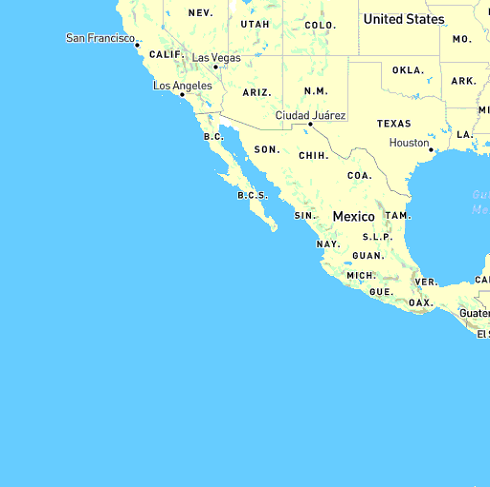FCA Secondary Markets Tape: What It Means for Investors

The FCA secondary markets consolidated tape enhances market transparency and efficiency by providing real-time trade data. This benefits investors and promotes fair trading practices.
The system plays a crucial role in enhancing transparency. Have you ever wondered how it impacts your trading decisions?
In this article, we’ll delve into its significance and implications for investors. It’s a key tool for understanding and navigating financial markets.
Understanding the FCA secondary markets
Understanding the FCA secondary markets is vital for anyone involved in trading or investing. These markets are where securities are bought and sold after their initial issuance.
By knowing how these markets operate, investors can make more informed decisions. This leads to higher liquidity, which is beneficial for all market participants.
The FCA, or Financial Conduct Authority, regulates these markets. This regulation ensures transparency, integrity, and fair trading practices.
Key Features of FCA Secondary Markets
The defining features of these markets include transparency, liquidity, and market efficiency. They ensure that all trades are reported, giving buyers and sellers access to current data.
This ability to buy and sell securities quickly helps to stabilize prices. It also helps investors make sound decisions.
The FCA monitors trading to prevent manipulation and fraud. This gives investors more confidence when engaging in transactions.
The Role of Market Makers
Market makers play a crucial role in maintaining liquidity. They stand ready to buy and sell securities at any time, which helps stabilize the market.
By doing so, they minimize price fluctuations. This provides a more predictable trading experience for everyone.
Understanding the FCA secondary markets helps investors grasp the different dynamics at play. It also equips them to identify opportunities and navigate potential risks.
Benefits of the consolidated tape system
The consolidated tape system offers numerous advantages for participants in the financial markets. This system streams real-time data on securities prices and volumes.
This promotes transparency and efficiency. By providing a single source of data, all market participants have equal access to information.
This helps investors make informed decisions. It allows them to see the true market value of securities at any given moment.
Improved Market Efficiency
The consolidated tape contributes to market efficiency by reducing information asymmetry. It minimizes discrepancies between the prices known to buyers and sellers.
When everyone has access to the same data, it creates a level playing field. This helps reduce transaction costs for investors.
It also encourages competition, leading to better prices. Additionally, real-time data facilitates quicker transactions, especially in volatile markets.
Regulatory Compliance and Reporting
Another significant advantage is the alignment with regulatory requirements. The FCA mandates that all trades are reported accurately and in a timely manner.
This ensures compliance with regulations while fostering a culture of responsibility. It strengthens the overall integrity of the financial markets.
By enhancing transparency and promoting competitive practices, the consolidated tape benefits everyone involved.
How the FCA regulates secondary markets

The way the FCA regulates secondary markets is crucial for maintaining fair trading environments. Their main focus is to protect investors and ensure the markets function smoothly.
By implementing strict rules and guidelines, the FCA aims to enhance transparency and accountability. One key aspect is the requirement for firms to report trades accurately and on time.
This transparency ensures investors have the information they need. It gives them the confidence to make informed trading decisions.
Key Regulatory Functions
The FCA performs various essential functions. They monitor trading activities to detect suspicious activities and market manipulation.
They also set standards that firms must follow to operate in the secondary market. The FCA has the authority to take action, including fines, against firms that don’t adhere to regulations.
Additionally, the FCA educates market participants about their responsibilities. This makes it easier for firms to comply with regulations.
Collaboration with Other Regulatory Bodies
Another important aspect of regulation is the FCA’s collaboration with other regulatory bodies. This cooperation helps in creating a harmonized regulatory framework, enabling better oversight and enhanced market integrity.
Through these efforts, the FCA not only protects investors but also fosters a stable trading environment that encourages participation and investment in secondary markets.
By ensuring that all players have a level playing field, the FCA helps maintain trust in the financial system.
Challenges in implementing the tape
Implementing the consolidated tape presents several challenges. While the benefits are clear, certain obstacles can complicate the process.
One significant challenge is the integration of technology. Different firms use various systems, which makes it difficult to create a unified data stream.
This requires compatibility among different systems. It’s an essential step for successful implementation of the tape.
Data Quality and Accuracy
Another key concern is ensuring data quality. High-quality, accurate data is crucial for the consolidated tape to function effectively.
Inaccurate or incomplete data can lead to poor trading decisions. It can also undermine market confidence.
Firms need to ensure consistent reporting standards and timeliness. They must also establish verification processes to ensure data is correct.
Cost Considerations
Cost is yet another challenge. Implementing a consolidated tape system can require significant investment in technology and training.
Smaller firms, in particular, may struggle to absorb these costs, which can hinder participation in the system.
Addressing these challenges is essential for realizing the full benefits of the consolidated tape.
By tackling technology issues, ensuring data accuracy, complying with regulations, and managing costs, stakeholders can create a more effective trading environment.
Future of FCA’s secondary market initiatives

The future of the FCA’s secondary market initiatives looks promising. New technologies and regulatory frameworks are continually evolving.
These advancements aim to improve market efficiency and transparency. They will benefit all market participants.
The FCA is likely to invest in new systems. This will help them handle larger volumes of data and provide faster processing.
Emphasis on Data Analytics
Data analytics will play a significant role in the future. The ability to analyze trading data will lead to better decision-making.
With advanced algorithms, firms can more accurately predict market trends. This will lead to increased automation and enhanced risk management.
Compliance technologies will also streamline reporting processes. This will ensure everyone meets regulatory requirements.
Global Collaboration
The FCA may also strengthen its collaboration with international regulatory bodies.
By working together, they can harmonize regulations across borders, improving stability in the global financial system. This could be beneficial for facilitating trade in international markets.
In conclusion, the future of the FCA’s secondary market initiatives is geared towards leveraging technology and ensuring investor safety.
By focusing on infrastructure, data analytics, and cooperation with global entities, the FCA is making strides toward a more efficient and transparent market landscape.
FAQ – Frequently Asked Questions about FCA’s Secondary Market Initiatives
What is the role of the FCA in regulating secondary markets?
The FCA ensures fair trading practices, protects investors, and promotes transparency in secondary markets by enforcing regulations and monitoring trading activities.
How does the consolidated tape benefit market participants?
The consolidated tape provides real-time data on securities prices, enhancing transparency and helping traders make informed decisions, which ultimately leads to better market efficiency.
What challenges does the FCA face in implementing the consolidated tape?
Challenges include integrating technology from different firms, ensuring data quality and accuracy, and managing costs associated with system upgrades and compliance.
What future initiatives can we expect from the FCA?
The FCA is likely to focus on enhancing digital infrastructure, improving data analytics, and increasing collaboration with global regulators to strengthen secondary markets.






